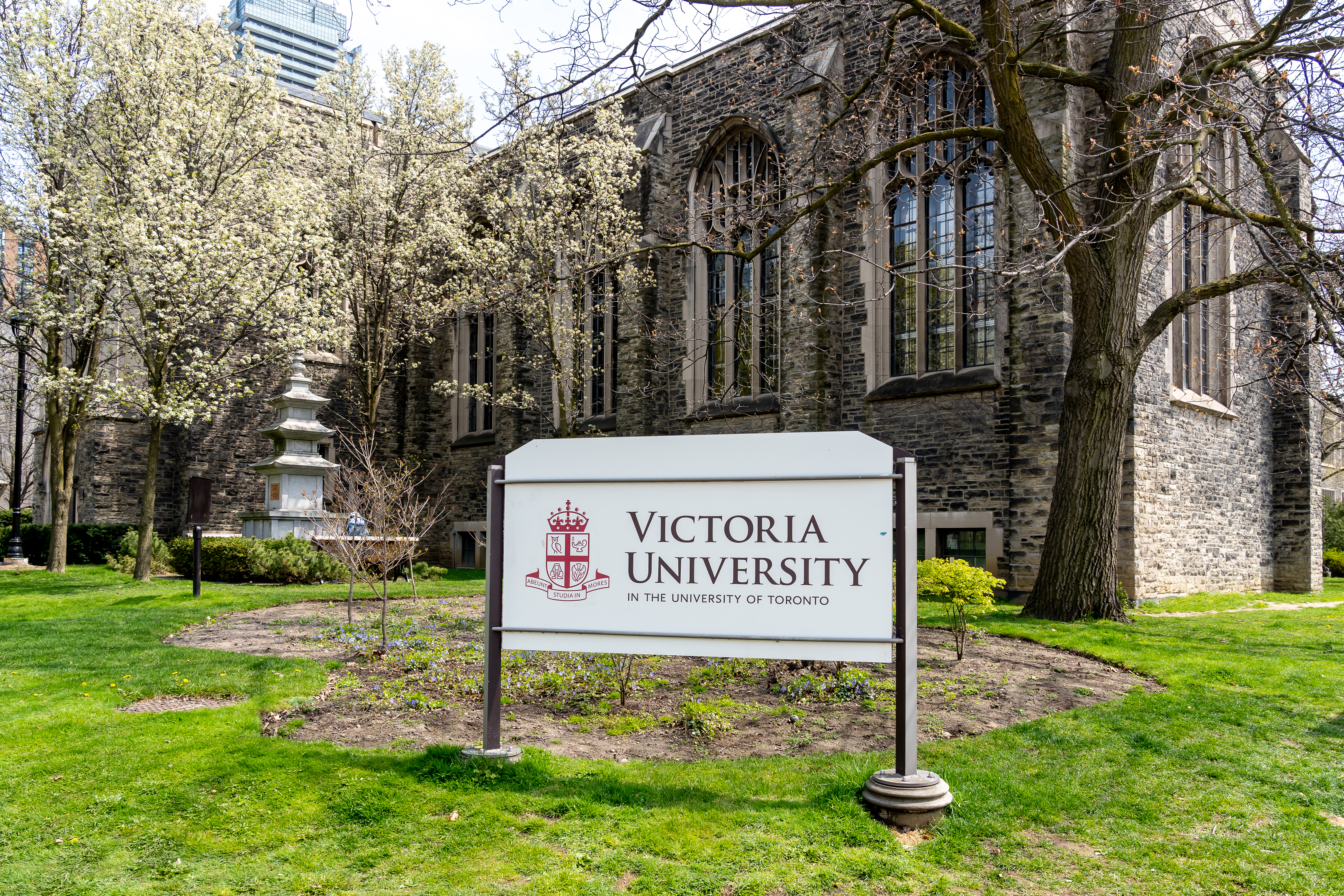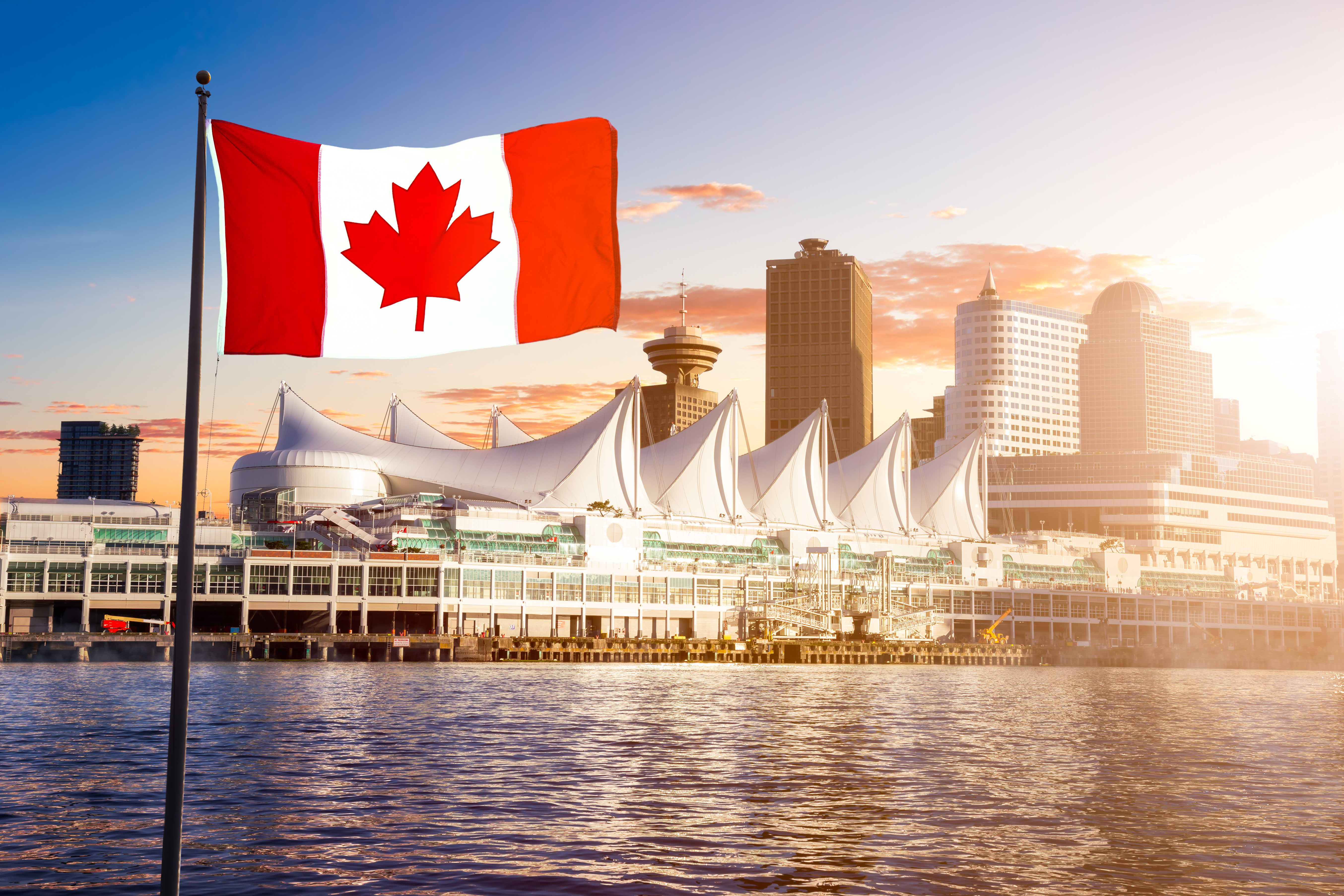There are several ways to immigrate to Canada, including federal and provincial programs, work, study, business, and family reunification. The eligibility requirements for immigrants depend on the program they choose. Foreigners who have lived in the country for at least 1,095 days (3 years) with a Canadian permanent residence permit can obtain a passport; the temporary residence permit stage is not mandatory. The following article will tell you about ways to move to Canada for permanent residence.
The pros and cons of moving to Canada
The advantages include:
- Free medical care for citizens and permanent residents of the state;
- The opportunity to work, study, and do business in a stable economy;
- Environmental cleanliness: According to the Environmental Performance Index, the country ranks 49th worldwide;
- The possibility of obtaining a passport after 3 years of legal residence (as opposed to an average of 5 years in the EU).
The disadvantages to consider include:
- Geographical location. Moving and transporting belongings requires significant resources;
- Most of the territory has cold winters (temperatures ranging from -25 to -16°C) and cool, humid summers (temperatures ranging from +15 to +20°C);
- High cost of goods and services.
The stages of immigration to Canada
The process of formally immigrating to Canada and becoming a citizen generally takes 4 to 7 years and consists of the following steps:
- Choosing a region to move to. The country consists of 10 provinces and 3 territories, each of which has its own immigration programs.
- Selecting a suitable legal basis. This choice should be based on whether the foreigner meets the requirements and how satisfied he would be with life in a particular region.
- Gathering and submitting documents for the visa. Documents should be sent to the receiving office address, which can be found on the government website. Once approved, the applicant will receive a letter with detailed instructions.
- Crossing the border. Depending on the program chosen, the permanent residence permit will be issued either upon arrival or after meeting the immigration law requirements (after 1-2 years)
- Requesting citizenship status. It becomes available after 3 years of continuous residence in the country.
What is Express Entry?
Express Entry is an online system used by the government to recruit skilled foreign workers. Through Express Entry, foreign professionals can obtain permanent residence status in about 6 months.
Applicants should start by creating an account on the Ministry of Citizenship and Immigration website. There are two ways to register: with the help of a login partner or GCKey.
Although you do not need to upload documents to register an account, information from some or all of the following will be required:
- Passport;
- A language test result;
- Canadian diploma or Educational Credential Assessment (ECA);
- An invitation from an employer;
- Employment history;
- A bank statement showing sufficient funds for living expenses.
After creating your account and logging in, you should complete your profile by entering the necessary personal information, including your work experience, language skills, and education. The system calculates points based on these criteria. On average, invitations to apply for permanent residence are sent twice a month to candidates with the highest scores.
The Express Entry program processes applications for three immigration programs:
- Federal Skilled Worker Program;
- Federal Skilled Trades Program;
- Canadian Experience Class.
Emigration through Express Entry is available to Level 0, A, and B occupation members according to the National Occupation Classification (NOC). This includes managers, professionals with higher education (doctors, architects, etc.), and technical workers (plumbers, electricians, etc.).
Canadian Immigration Programs
These programs are divided into federal, which apply to the entire territory of the state except Quebec, and provincial, which apply to a specific region. Most programs aim to attract workers to sparsely populated areas. Participants who meet all the conditions are eligible to apply for permanent residence immediately upon arrival.
A comparison of Canadian immigration programs:
| Immigration program | Education | Work experience | Language level, CLB |
|---|---|---|---|
| Atlantic Immigration Pilot Program | high school or higher | from 1 year | 4 |
| Rural and Northern Immigration Pilot | high school or higher | from 1 year | 4 |
| International Experience Canada | high school or not required | — | — |
| Agri-Food Immigration Pilot | high school | from 1 year | 4 |
| Self-employed Persons | at least high school | from 2 years | — |
| Federal Skilled Worker | high school or higher | from 1 year | 7 |
| Federal Skilled Trades | high school or higher | from 2 years | 5 — listening and speaking, 4 — reading and writing |
| Canadian Experience Class | not required | from 1 year | 7 — category 0 and A occupations, 5 — category B occupations |
| Caregiver Program | at least a year after high school | — | 5 |
Atlantic Immigration Pilot Program
The program was created to attract workers to the 4 Atlantic provinces: Newfoundland and Labrador, Prince Edward Island, Nova Scotia, and New Brunswick. The AIPP is divided into 3 subprograms:
- The Atlantic International Graduate Program is for individuals who have resided in a participating province and received a diploma from a local public institution;
- The Atlantic High-Skilled Program is for individuals who have worked for at least one year in an NOC Category 0, A, or B occupation;
- The Atlantic Intermediate-Skilled Program is for individuals who have worked for at least one year in a position corresponding to National Occupational Classification Category C.
To participate in the AIPP, you must have a contract with a specific employer for at least one year. Lists of employers can be found on provincial websites. At least 30 hours of employment per week is allowed. You must have a language score of at least CLB 4 on the Canadian Language Benchmark. Employers are not always easy to find, which can be a disadvantage to this method.
Rural and Northern Immigration Pilot
The program is designed to attract foreigners to the northern regions and rural areas for residence and employment. The main difficulty lies in finding a vacancy.
Requirements for RNIP participants:
- Qualifying work experience of at least 12 months within the last three years, or graduation from a public university in the recommended region/area;
- A language test score of at least CLB 4;
- Funds available for living expenses (at least 8,922 CAD per person);
- A diploma from a Canadian post-secondary school or university, or an ECA education assessment;
- The intention to settle in the region/area.

BC Tech Pilot for programmers
The program allows members of 29 technical professions to obtain employment and permanent residency in the Canadian province of British Columbia. Eligible applicants include programmers, computer engineers, construction workers, mechanics, and radio technicians. Since its launch in 2017, the program has enabled more than 6,000 foreigners to emigrate.
To participate in the BC Tech Pilot, an invitation from an authorized employer is required. First, applicants must register in the SIRS (Skills Immigration Registration System), which awards points to each applicant. Candidates with the highest scores receive invitations weekly.
International Experience Canada (IEC)
In this case, immigration is available to people between the ages of 18 and 35, though in some cases, it is available to people up to 29 or 30 years old. The program is open to foreigners who fit into one of three categories:
- Working H The category is for individuals who choose to travel the country for no more than a year and work temporarily. Participants receive an open work permit, which is not tied to an employer.
- Young professionals. Young professionals and recent graduates who have received a one-year job offer from an employer. The position must correspond to Level 0, A, or B according to the National Occupational Classification (NOC), and the applicant’s education must be relevant. In some cases, holders of a C-level occupation with a diploma from a university, college, or institute are allowed to participate. The work permit is issued with a link to the employer.
- International Co-op. Students studying at a university who wish to undertake an internship of no more than one year. The internship must be related to their intended specialty. Foreigners are issued work permits with links to their employers.
Citizens of countries that have a bilateral agreement or arrangement with the IEC program can apply. This list includes more than 30 countries, such as almost all European countries, some Latin American countries, Australia, South Korea, and Hong Kong.
Agri-Food Immigration Pilot
This position is ideal for foreign nationals with skills in the agricultural industry, including meat production, animal husbandry (excluding fish and seafood farming), and farm work such as harvesting.
AFIP eligibility requirements:
- A minimum of one year of permanent work experience in the country within the last 36 months, obtained under the Temporary Foreign Worker Program in one of the eligible occupations;
- An invitation for permanent, non-seasonal employment;
- A Canadian high school diploma or an ECA assessment showing completion of grade 11 in the country of citizenship;
- Language proficiency at CLB/NCLC level 4 or higher;
- Having a bank account balance of at least CAD 13,213 per person.
Self-employed Persons
Self-employed individuals in the fields of culture or sports may immigrate to Canada through this program. This category is also open to individuals who have participated in relevant global events. Applicants must have at least 2 years of work experience in the last 5 years.
Eligible occupations include:
- Writers;
- Artists;
- Musicians;
- Sculptors;
- Movie production workers;
- Designers;
- Athletes.
All candidates are evaluated based on 5 criteria:
- Education;
- Work experience;
- Language skills;
- Age;
- Ability to adapt to Canadian society.
Applicants must provide a certificate showing they have no criminal record and undergo a medical examination. They must also prove that they have the financial means to be self-sufficient for the period of their residence.

Federal Skilled Worker
This is intended for highly qualified employees who are planning to relocate for permanent residence. The occupation in which the candidate has work experience must coincide with the proposed employment. Applicants are selected through the Express Entry system. The minimum passing score is 67.
FSW program eligibility requirements:
- 12 months or more of continuous work experience in a Level 0, A, or B occupation according to the NOC;
- A Canadian high school or university diploma or an equivalent ECA grade;
- A language test score of at least CLB 7;
- Sufficient funds for living expenses: at least CAD 13,757 per person (does not apply to individuals already in the country or with a valid job offer).
Federal Skilled Trades
This position is suitable for B-level technicians, including construction workers, electricians, and equipment maintenance specialists. While there are no educational requirements, having a diploma increases your chances of being selected for Express Entry.
Participation requirements for FST:
- Have at least two years of work experience within the last five years at the time of application;
- Have a minimum one-year contract with an employer or a Canadian Certificate of Qualification;
- Have the following language test scores: – CLB 5 for listening and speaking and CLB 4 for reading and writing;
- Plan to live in any region except Quebec;
- Have sufficient funds to live on after moving to Canada.
Canadian Experience Class
This federal program is for individuals who have at least one year of work experience in Canada within the last 36 months. It is also available to individuals who have previously moved to Canada on a temporary resident visa with work authorization. Refugees and individuals who gained experience without temporary resident status are not eligible for the CEC.
Applicant requirements:
- Have at least one year of experience in a Level 0, A, or B occupation, according to the National Occupational Classification (NOC);
- Have a language test score of CLB 5 for a B occupation or CLB 7 for occupations in levels 0 and A;
- Intend to move to any province in the country except Quebec.
Employment during full-time study and self-employment do not count. While there are no educational requirements, providing diplomas will add points when an applicant’s Express Entry profile is evaluated.
Caregiver Program
The program allows foreigners to immigrate to Canada as caregivers or nannies, even without experience, as long as they meet the other requirements. Currently, there are two tracks: The Home Child Care Provider Pilot and the Home Support Worker Pilot. The Home Child Care Provider Pilot was suspended after receiving more than 2,750 applications, but it will resume on January 1, 2022. After immigrating, a foreigner must work for at least 24 months to qualify for permanent residence.
Applicant requirements:
- Employment contract with a Canadian employer;
- The ability to perform the assigned work with certificates from courses, a diploma, or previous experience;
- Language proficiency score of at least CLB/NCLC 5;
- At least one year of post-secondary education in Canada, or an equivalent ECA grade.
Immigration through studies
Foreigners can immigrate to Canada for the purpose of pursuing higher education. Although the student visa is not an immigration visa, Canadian graduates have access to the following benefits:
- The opportunity to apply for a Post-Graduation Work Permit (PGWP);
- Accrual of additional points when participating in programs through the Express Entry system;
- Language skills impovement.
To immigrate, it is necessary to obtain a study permit. Foreigners enrolled in any accredited state educational institution can obtain one. After graduating, working for a year on a PGWP allows you to participate in an immigration program that grants a residence permit. Disadvantages of this method include high language proficiency requirements for admission (IELTS 6.5) and the cost of education (CAD 8,000–20,000 per year, depending on the field of study).

Immigration through employment
Non-immigrant work visas allow workers who are not highly skilled to travel to Canada. Applicants need to apply for a permit at a visa application center based on an invitation from an employer and a Labour Market Impact Assessment (LMIA). The LMIA proves that employing a foreign worker is necessary. The LMIA is issued by the Canadian employer. The work permit can be related to a specific employer (i.e., closed) or not (i.e., open).
The advantage of this immigration option is the opportunity to gain work experience and improve language skills. After working for one year, immigrants become eligible to participate in the Canadian Experience Class federal immigration program.
Business immigration
There are two programs for entrepreneurial immigration: the Quebec Entrepreneur Program and the federal Start-up Visa program. Both programs allow you to immigrate to Canada by starting or buying a business.
The Start-up Visa program requires you to:
- Have a language proficiency of at least CLB 5;
- Have sufficient funds to relocate (at least CAD 13,757);
- Attract support from a venture fund, business angel, or incubator;
- Invest at least CAD 75,000 in a startup development with the support of a business angel, or at least CAD 200,000 if a venture capital fund has been attracted;
- Intend to reside in any province of the country except Quebec.
The Entrepreneur Program is divided into two streams.
The requirements for participating in the first stream are:
- Reside and develop a business in Quebec;
- Receive support from a business accelerator, university entrepreneurship center, or an incubator;
- Present a business project in the form of a detailed plan;
- Provide evidence that the applicant has explored the values of democracy and the province.
The second stream requirements are:
- Settle in Quebec for the purpose of doing business;
- Have a minimum of CAD 900,000 in capital, either individually or jointly with your spouse;
- Submit a business development plan;
- Own at least 25% of a new business or 51% of an acquired business;
- Obtain a certificate demonstrating that the values of the province and democracy were explored by the applicant;
- Apply for permanent residence if the business has been in operation for at least 5 years.
After the calculation, you will know how much money you need to move to Canada.
Immigration through investment
The province of Quebec has an immigration program for foreign investors that requires the following:
- Have personal capital of at least CAD 2,000,000 alone or with a spouse;
- Have at least two years of experience in a management position;
- Intend to reside in Quebec;
- Sign an agreement with an authorized financial intermediary;
- Make an investment of CAD 1,200,000 through Investissement Québec and maintain it for five years;
- Demonstrate English proficiency at CLB 5 or French proficiency at B2.
All candidates are evaluated on a 100-point scale. In addition to language proficiency, the evaluation considers age, education, and work experience. The minimum number of points required for participation is 40.
Family reunification
An adult relative with permanent resident status or Canadian citizenship can sponsor a foreigner through the Family Sponsorship program. After entering the country, the sponsored person can become a permanent resident and live, study, and work permanently.
Relatives who can be sponsored include:
- Spouse;
- Civil partner (cohabitation must be documented);
- Dependent children under 22 years of age who are not in an official or civil partnership, or who are unable to support themselves due to a physical or mental condition;
- Parents;
- Grandparents;
- Orphaned siblings under the age of 18.
If a permanent resident or Canadian citizen does not have any of the above relatives, then any other relative can be sponsored. In turn, the invitee must not have any other relatives in this state who can transport them home. When applying, the sponsor must prove their income, and the invitee must state that they will try to provide for themselves.
Refugee
According to the Geneva Convention, Canada is required to welcome and support refugees. The Immigration and Refugee Board of Canada (IRB) reviews asylum applications.
People who cannot return to their home country for any of the following reasons can apply for asylum:
- Persecution due to religious beliefs, political opinions, nationality, or membership in a social group;
- Life threatening;
- Risk of torture and ill-treatment;
- Military conflict in the country of permanent residence.
Asylum will be refused if:
- The applicant has a proposal to move to another country;
- The applicant is in the process of obtaining citizenship of another country;
- The reasons for being unable to return to the home country are irrelevant.
To move as a refugee, it is necessary to apply to the relevant UN agency (UNHCR) for a referral. Based on this referral, a foreigner has the right to request asylum at any point of entry into the country.
Best way to immigrate to Canada
There is no one-size-fits-all way to immigrate to Canada from any country. The method you choose depends on your priority (study, work, or business), experience, and financial situation. All methods of immigration are very difficult in terms of obtaining Canadian citizenship. Therefore, to increase your chances of success, we recommend contacting a lawyer who can help you immigrate to Canada or find an alternative method based on your needs.













